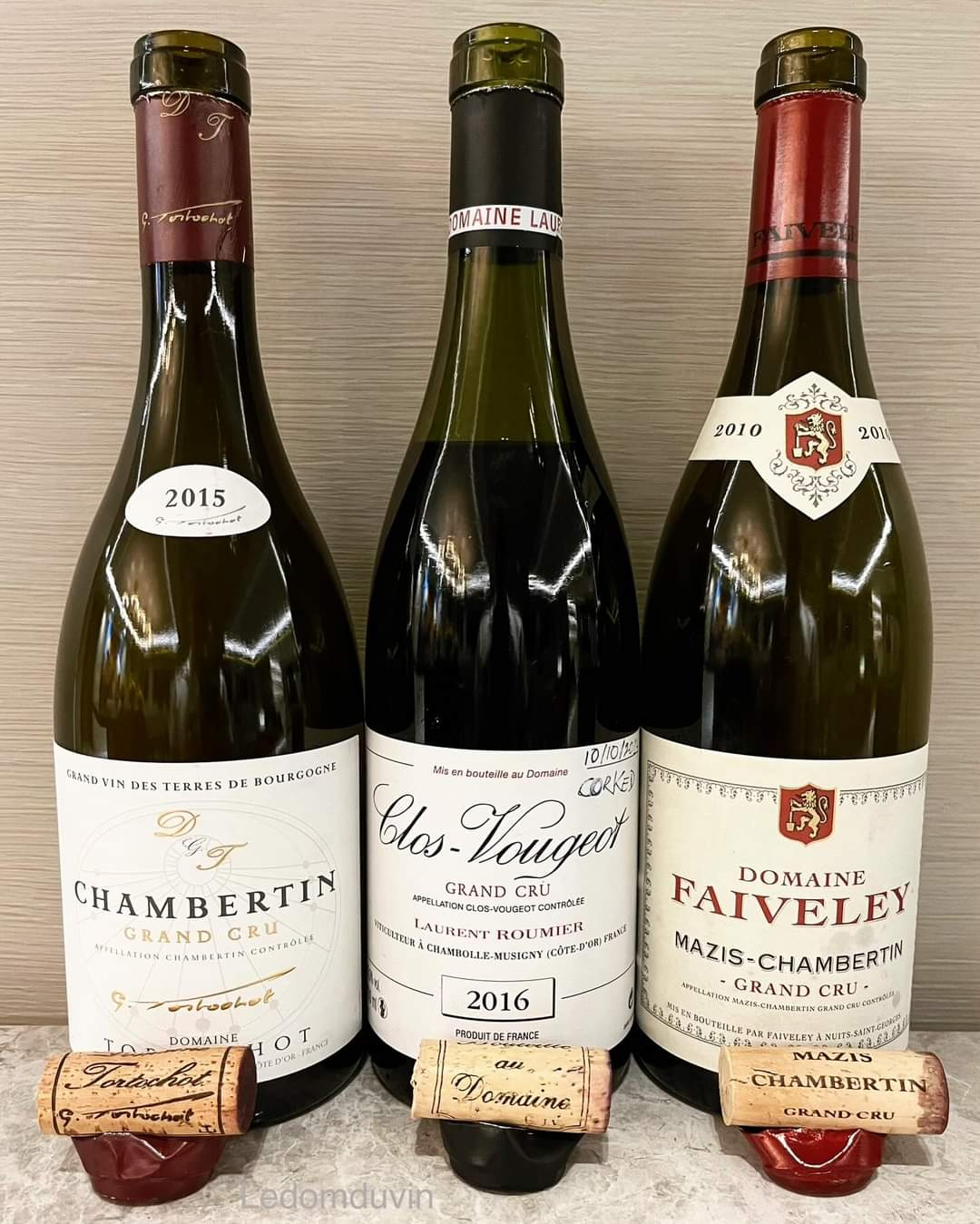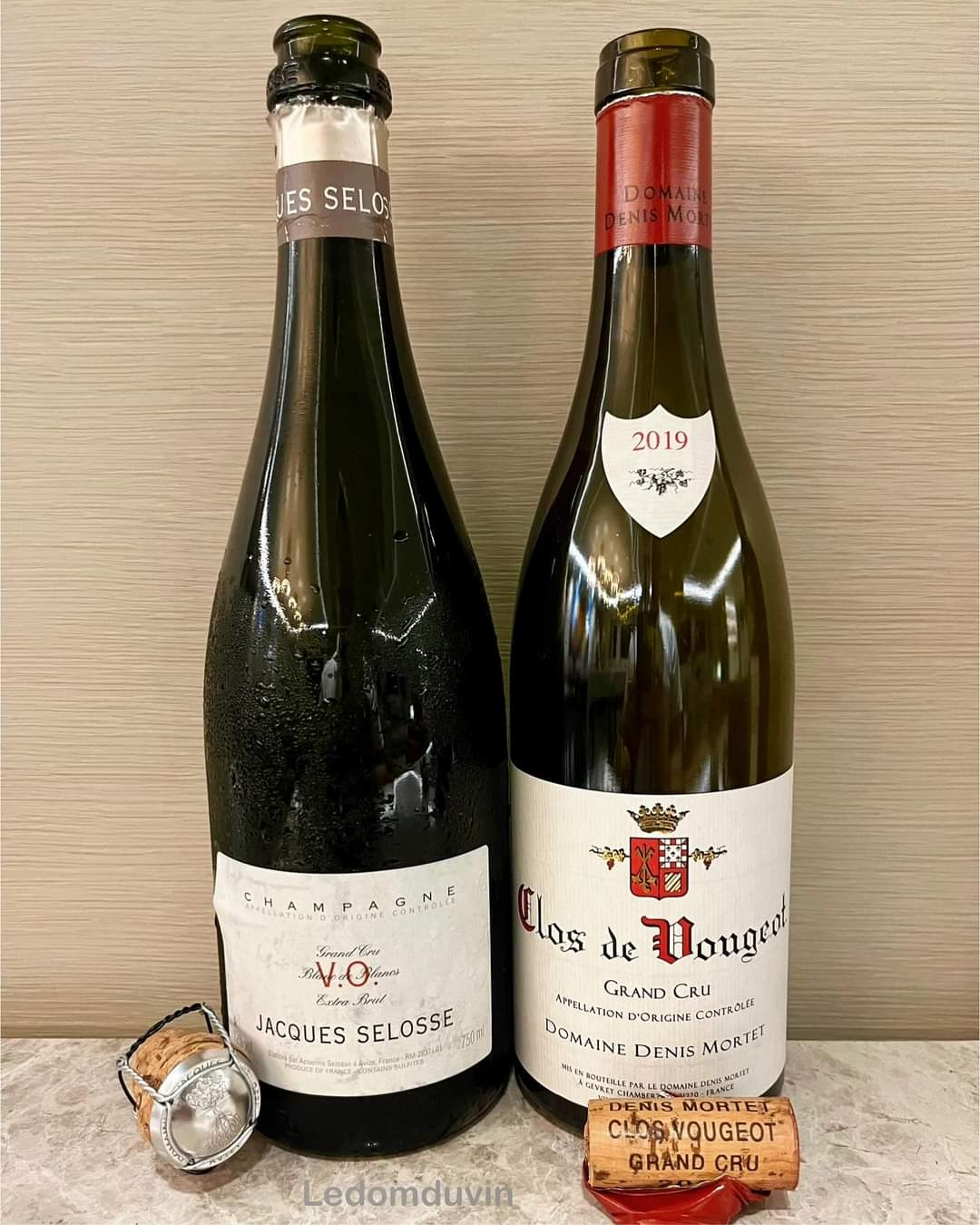Do you buy wine for the wine itself or to pair with food?
I had an interesting conversation last night with some colleagues, Sommeliers, and servers about the differences in how restaurant Sommeliers buy wine nowadays compared to how I buy wine (and have been buying for the past 33 years).
It is a fascinating and vast subject that I might develop further in a separate post, as it involves differences in palates, personalities, cultures, traditions, etc., and, therefore, cannot be resumed in a simple post.
However, to give you the short version, they told me they buy wine to pair with food. I told them that, personally, I buy wine first for the intrinsic quality and taste of the wine alone, without thinking about the food pairing.
(You might think it is strange for an experienced Sommelier like me, but hear me out).
I mostly buy wines that give me (and my customers) instant satisfaction and gratification on the first sip. Wines that immediately call for another glass right after the first one.
I buy wines you want to drink without thinking about them, trying to understand them, or finding an excuse for their flaws by saying, "It would be great if paired with this or that kind of food!" No! That's bullshit.
Think about it. If both the food and wine are already respectively good on their own, pairing them, if well-matched, will result in a greater experience.
I never understood the Sommeliers who buy certain wines that do not taste really good on their own (unbalanced, too acidic, too much tannins, overripped, underrippped, bitter, sour, etc..) but are supposedly great when paired with such and such food.
You know the usual Sommelier jargon: "I understand your concern, yet the high acidity, sourness, and rustic tannins of this wine will sublime the sweetness of this dish!"
No! Once again, that's bullshit! The wine should be good on its own, and that's it!. Otherwise, what's the point of buying and serving it? What's the point if the wine has a great story behind it but, in the end, nothing to tell when you taste it?
I basically put myself in the shoes of my customers and patrons. They usually come to a restaurant to have a good time, spend some time with family, friends, or co-workers, and enjoy the decor, the food, the wine, the ambiance, the atmosphere, etc. They may come for a special occasion, in good company, or just to relax and enjoy. They want to leave with a memorable and joyful experience.
So imagine if the Sommelier serves what I call a "cerebral wine. " You know, the type of wine that is difficult to understand and not necessarily pleasurable at first sip despite the endless explanations of the Sommelier trying to convince you it is a great wine that will go well with the dish you chose. The ones that necessitate you scratching your head, wondering whether you might like it.
Unfortunately, nowadays, it happens more often than not, especially from Sommeliers who follow trends or adulate some supposedly genius winemakers producing unfathomable wines that need a plethora of justifications, excuses, and explanations to suddenly become drinkable.
I leave that to them. I'm an old-school Sommelier who follows his palate and guts and likes pleasurable things to eat, drink, and smoke.
As mentioned above, I prefer to buy and serve wines that give you instant satisfaction and gratification on the first sip—wines with a "Wow!" factor—wines that give you emotions and leave you speechless rather than bewildered.
For example, the other day, a colleague Sommelier had me taste a wine from his list from a producer I had heard from but had never tasted before. This is supposedly an upcoming producer, a rising star (as they say), recently established and producing small quantities of wines highly coveted by many Sommeliers and cavistes. I won't give any name, as tasting is subjective. Everyone is entitled to his own opinion. And mentioning his name won't do me good (or the producer).
However, although I was grateful to be able to taste the wine, as it is essential for a Sommelier to taste everything (especially wines he or she does not know), I must say, I was a little disappointed by the wine. It was thin, light, and slightly bitter, with high acidity, no concentration or complexity, and a short finish. The typical Sommelier wine displaying everything it has to offer upfront, high acidity to be paired with food, but vanishes quickly and does not leave any memorable impression or taste. It was not faulty or bad; it was just "meh"...
And I must say, it was not the first time I was disappointed by the wines some of my Sommelier colleagues chose to feature on their wine lists. That's because they buy wine with the food in mind (to go with the food), not for its intrinsic quality and taste, but for what it may offer when paired with food.
Which is understandable to a certain extent. It is their way of buying wine, and I respect it. But in the end, if the wine necessitates lots of explanation to be understood and appreciated, what's the point? Where is the customer's pleasure in all this? What kind of experience will he or she have drinking such wine?
And my reasoning applies to everything in life. If you buy shoes, for example, you will not buy them simply because the vendor recommended them and gave you a whole story about them. You will buy them because you like the design, the color, and other details, how they fit your feet and style, and, most importantly, how comfortable you are in them. No?
Well, for me, it is the same. I buy good to excellent wines (you need wines that fit all budgets) that make you feel good, at ease, and relaxed. Wines that are expressive, complex, and satisfying from beginning to end. Wines that don't leave you hanging for more in mid-palate while it will never come. Wines that don't need 30 minutes of justifications, excuses, and explanations to be understood and appreciated.
When tasting a wine, the first reaction should be, "Wow! That's good!" rather than, "I'm not sure if I like this!"
"A wine should trigger pleasure and enjoyment, not questions." - Dom
Of course, some wines may be less expressive, tight, or closed at the opening (especially if young and in a closed phase). They may take a little time to open and deliver their full potential (usually after oxygenation or decantation). Nevertheless, they will give pleasure once opened, and even more if well-paired with the food.
That is why I buy wine first for the wine itself and then try to match it, to the best of my knowledge and skills with the dish. It is wrong, in my opinion, to buy a wine primarily thinking it will enhance the food and vice versa.
For me, you buy the wine to be drunk on its own first. If a wine is already good to great on its own, then it is the Sommelier's job to know which food to pair it with.
My daily routine involves buying, preparing, and serving wines for private and corporate dinners and events. In most cases, I know the menu in advance, but I rarely taste the dishes in advance. So how would I know how to buy the wine with the food in mind if I do not know the exact taste of the food? I must know the wine first, then establish which dish it best pairs with. That's why the wine has to be pleasurable on its own first, as the pairing (and tasting) is also very subjective.
Lucky me, after 33 years of experience, I rarely go wrong as I know my wines even if I don't know the taste of the food.
For example, the 3 wines in this picture are stunning examples of excellent wines I served lately for a private dinner. They were magnificent with the food, greatly enhancing the whole experience. Did I buy them with the food in mind or to be paired with the food served that particular night? No! Not at all. I just looked at the available stocks in the cellar and made a decision based on my knowledge, skills, and guts. And it worked perfectly.
What do you think? Do you buy wine for the wine itself or to pair with food?
I could go on for pages about the subject, but I will stop here instead. I think you've got a good picture of the point I was trying to make.
In the end, it's all subjective. I respect the opinions and tastes of everyone, even those of my Sommelier colleagues, which can sometimes be questionable. 😉 And yet, that's what makes wine so interesting: there is one for everyone and every palate.
That night, I opened, prepared, and served the following wines:
Champagne Henriot L'inattendue Chardonnay Grand Cru 2016
Champagne Henriot has always been one of my favorite houses and is, in my opinion, totally underrated. From their entry-level Cuvée (Brut Souverain) to their most prestigious Cuvée (Memoires), all their Champagnes are good to excellent and outstanding value for money compared to their peers.
The 2016 vintage was the first for this new Cuvée "L'Inattendue" ("the unexpected" translated in English). Maison Henriot's latest creation unveils a terroir through a unique year (single vintage) and a single grape variety (Chardonnay). This gorgeous Champagne combines richness and complexity with elegance and charm, fine bubbles mingling with apple, stone fruits, zesty fruits, mineral nuances, lightly toasted notes and refreshing acidity. The lingering finish is a delight! Love it.
Philippe Colin Chevalier-Montrachet Grand Cru Cote de Beaune Burgundy 2019
Again, Philippe Colin is one of my favorite producers from the Chassagne/Puligny area. And this Chevalier-Montrachet is splendid. Beyond its attractive pale yellow color, the nose displays delicate and seductive aromas of white flowers and yellow fruits, buttery and lightly toasted notes with mineral nuances. The palate is so integrated that it seems seamless and flawless. There are no angles, no excess. Everything is balanced, integrated, and perfectly harmonious, from the attack to the endless finish. This is the type of wine that would make a non-drinker fall in love with wine. Looooove it.
Domaine Tortochot Chambertin Grand Cru Cote de Nuits Burgundy 2015
Some may say it is still too young, but I find it very approachable right now. I have opened a few bottles of this wine recently, and they all showed wonderfully. It presents a medium-deep ruby color. The nose offers enticing autumnal mixed aromas of ripe dark berries and cherries, venison, earth, autumn leaves, and warm wood notes mingling with mineral nuances. The palate is rich, ample, complex, and layered, well-balanced, with good acidity and present yet integrated tannins, bringing great texture and structure throughout the palate until the earthy finish. Love it.
That's all, folks!
Cheers! Santé!
Dom
@ledomduvin #ledomduvin #champagnehenriot #champagne #philippecolin #domainetortochot #burgundy #wine #vin #vino #wein #sommelier #sommelierlife #sommlife #ilovemyjob #wineyearly #lovewine #howtobuywine
Unless stated otherwise, all rights reserved ©LeDomduVin 2024, on all the contents above including, but not limited to, photos, pictures, drawings, illustrations, collages, visuals, maps, memes, posts, texts, writings, quotes, notes, tasting notes, descriptions, wine descriptions, definitions, recipes, graphs, tables, and even music and video (when and where applicable).


























